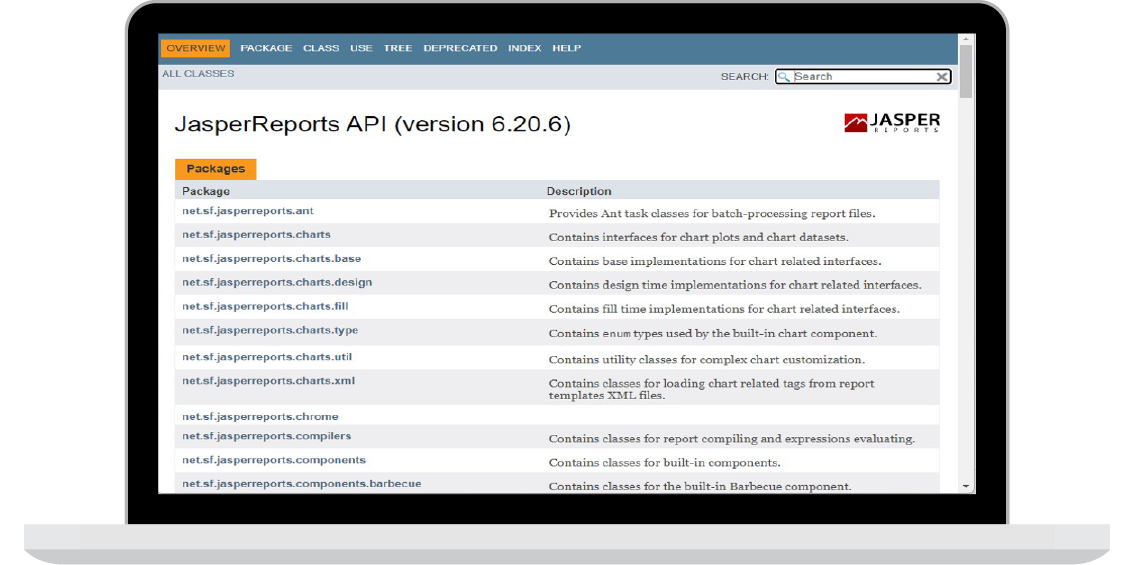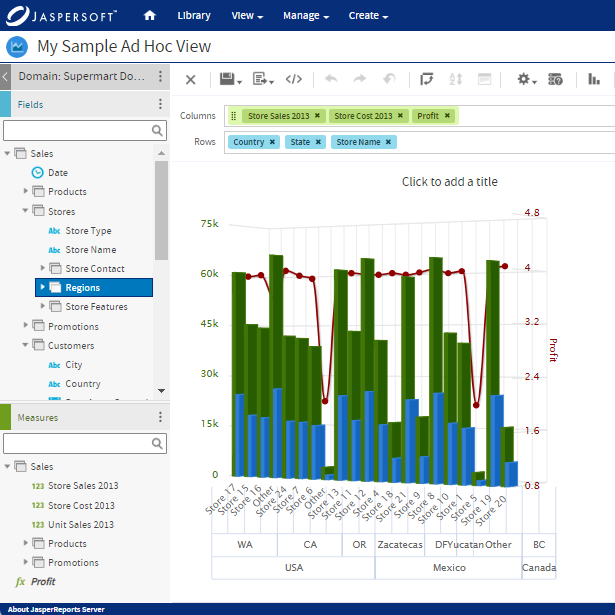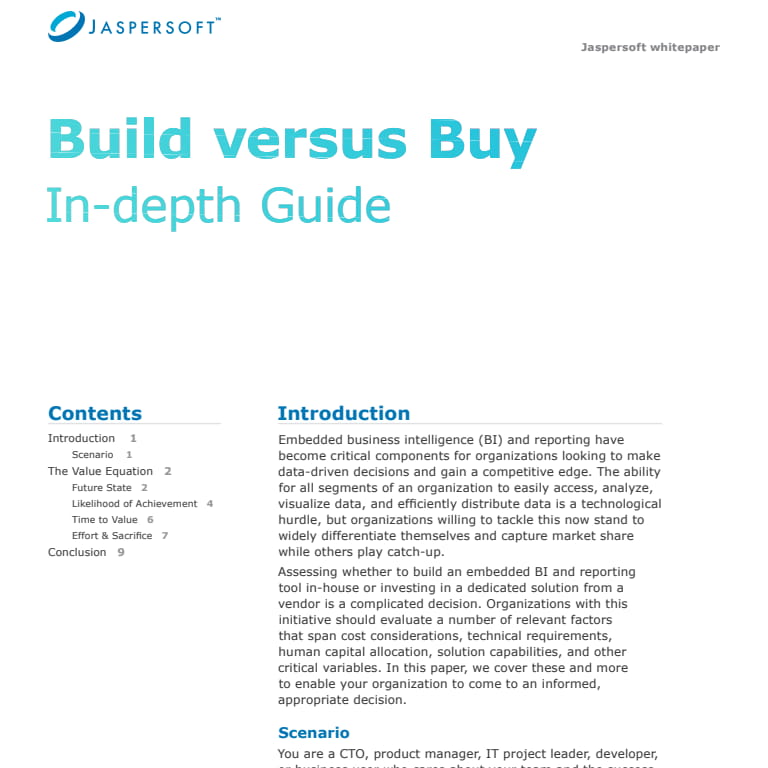What is Open Source Reporting?
Open source reporting is a process of creating and sharing reports using data and software that are freely available to anyone. It can be a powerful way for business owners to gain insights, transparency, and collaboration from their data sources.

Open source reporting can be a valuable option for business owners who want to leverage their data for better decision making and communication. However, it also requires careful planning, selection, and maintenance of the data and software components.
The Essence of Open Source Report Software
In the ever-evolving landscape of business technology, the term "open source report software" has become increasingly prevalent. At its core, open source report software refers to a category of business intelligence tools that are built on open source principles.
Unlike proprietary software, where the source code is closed and controlled by a single vendor, open source report software encourages collaboration and allows users to access, modify, and distribute the code freely.
The benefit of open source report software lies in its adaptability and flexibility. Businesses can tailor the software to suit their specific needs, whether it's creating custom reports, integrating with existing systems, or scaling operations. This approach fosters a sense of ownership, as organizations are not beholden to a single vendor's roadmap but can actively participate in shaping the future of the software.
The Advantages of Embracing Open Source Report Software
Empowering Customization for Unique Business Needs
At the heart of the advantages offered by open source report software lies an unparalleled level of customization, allowing businesses to sculpt their reporting tools to fit their unique needs like a tailor-made suit.
Unlike proprietary solutions that often come with rigid structures, open source report software empowers organizations to modify the source code, adapt functionalities, and create a reporting environment tailored precisely to their requirements. This flexibility extends beyond cosmetic changes; businesses can delve into the intricacies of the code to add features, integrate with specific systems, or fine-tune performance, offering an unprecedented level of control over their reporting processes.
Moreover, this customization capability fosters innovation. Organizations can experiment with new ideas, explore unconventional reporting formats, and adapt swiftly to evolving business needs. In essence, open source report software is not a one-size-fits-all solution; it's a canvas waiting for businesses to paint their unique data narrative. This flexibility stands as a beacon for companies navigating the complex landscape of modern business intelligence, providing a tool that adapts as swiftly as their business strategies evolve.
Cost-Effective Solutions for Budget-Conscious Enterprises
In a world where budgets are often a tightrope act, the cost-effectiveness of open source report software shines as a beacon of financial prudence. Proprietary solutions often come with hefty licensing fees, making them prohibitive for small and medium-sized enterprises (SMEs) or startups striving to make every penny count.
Open source, on the other hand, eliminates these upfront costs, allowing businesses to allocate resources strategically, whether it's investing in talent, expanding operations, or innovating in other areas critical for growth.
The cost savings extend beyond initial licensing fees. With open source report software, businesses have the freedom to choose their hosting infrastructure, opting for cost-effective cloud solutions or leveraging existing on-premises resources. This flexibility not only aligns with budget constraints but also ensures scalability, enabling organizations to expand their reporting capabilities without breaking the bank.
The financial advantages of open source report software stand as a testament to its democratizing influence, making robust reporting tools accessible to businesses of all sizes, irrespective of their financial prowess.
Enhancing Collaboration with a Global Community
In the realm of open source report software, the term "community" takes on a transformative meaning. The global community that surrounds open source projects is a treasure trove of collective intelligence, bringing together developers, analysts, and users from diverse backgrounds. This collaborative ecosystem not only accelerates the pace of innovation but also serves as a support network for businesses navigating the intricacies of open source solutions. In the face of challenges, whether it's a bug in the code or a complex reporting requirement, the community becomes a resource, offering insights, solutions, and best practices.
This collective intelligence ensures that open source report software is not a static entity but a living and evolving organism. Updates, improvements, and new features emerge as a result of the shared expertise of the community.
Businesses, by embracing open source solutions, become part of this dynamic network, gaining access to a wealth of knowledge and contributing to the ongoing evolution of the software. The power of collective intelligence in the open source community transcends the capabilities of any single vendor, creating a robust and responsive ecosystem.
Agile Responses to Evolving Needs
In the fast-paced landscape of modern business, the ability to adapt swiftly to changing needs is a competitive advantage. Open source report software, with its agile development model, aligns seamlessly with the dynamic nature of business operations.
Unlike proprietary solutions with fixed release cycles, open source projects can evolve rapidly, responding to emerging trends, addressing security concerns, and incorporating user feedback in real-time. This agility ensures that businesses are not tethered to the timelines of a single vendor but can harness the collective momentum of the open source community to stay ahead of the curve.
Furthermore, the openness of the development process enables businesses to actively participate in shaping the future of the software. Feature requests, bug reports, and contributions from users across the globe influence the direction of open source report software. This level of engagement ensures that the software remains relevant and aligned with the evolving needs of businesses, making it a strategic asset in the pursuit of operational excellence.
The agile responses facilitated by open source report software position businesses to navigate the twists and turns of the business landscape with resilience and adaptability.
Seamless Integration with Diverse Data Sources
In the data-centric era, the ability to integrate seamlessly with diverse data sources is a defining factor for the effectiveness of reporting tools. Open source report software excels in this aspect, offering unparalleled versatility in data integration. Whether the data resides in databases, spreadsheets, cloud storage, or proprietary applications, open source solutions can bridge these disparate sources, creating a unified and comprehensive view of an organization's data landscape.
This versatility extends to the integration of third-party tools and extensions. Open source report software often supports a wide array of plugins and connectors, enabling businesses to extend the functionalities of their reporting tools without being locked into a specific vendor's ecosystem. The freedom to choose the best tools for specific tasks, coupled with the seamless integration capabilities of open source solutions, empowers businesses to create a reporting infrastructure that aligns with their unique requirements.
Breaking Down Data Silos for Holistic Insights
Data silos, the bane of efficient decision-making, often emerge in organizations where information is compartmentalized across different departments or systems. Open source report software acts as a catalyst for breaking down these silos, fostering a holistic approach to data analysis. By consolidating data from various sources into a unified reporting platform, businesses can gain a comprehensive understanding of their operations, identify cross-functional trends, and make strategic decisions based on a complete picture.
Moreover, open source solutions offer the flexibility to tailor data integration processes to specific business needs. Whether it's real-time data streaming, batch processing, or integration with emerging technologies like the Internet of Things (IoT), open source report software provides the tools to adapt to the evolving landscape of data integration. The versatility unleashed by open source solutions not only enhances the efficiency of reporting processes but also positions businesses to harness the full potential of their data for strategic decision-making.
Transparency as a Pillar of Security
Security is a paramount concern for businesses entrusting their data to any software solution. Open source report software, built on the principles of transparency, offers a unique advantage in this regard. The source code of open source projects is open for scrutiny by anyone, fostering a level of transparency that is often elusive in proprietary solutions. This openness ensures that security vulnerabilities can be identified and addressed swiftly by the community, reducing the window of exposure to potential threats.
Additionally, the transparency of open source report software provides businesses with insights into the security practices embedded in the code. From encryption protocols to access controls, organizations can evaluate the security measures implemented in the software and customize them to align with their specific security policies. This level of visibility not only instills confidence in the security posture of open source solutions but also empowers businesses to actively participate in securing their reporting environment.
Adapting to Regulatory Landscapes
In an era where data protection regulations and compliance standards are continually evolving, businesses must ensure that their reporting tools align with these regulatory landscapes. Open source report software, with its customizable nature, provides the flexibility required to adapt to changing compliance requirements. Whether it's implementing encryption measures, enhancing access controls, or ensuring audit trails for reporting activities, open source solutions can be tailored to meet the specific demands of regulatory frameworks.
Moreover, the collaborative nature of the open source community means that updates and features related to security and compliance are shared swiftly. As regulatory landscapes evolve, open source projects incorporate the necessary features and adjustments, ensuring that businesses using the software remain in compliance with the latest standards. The security and compliance advantages offered by open source report software position it as a trustworthy ally in the protection of sensitive business information.
Future-Proofing Business Intelligence Strategies
As businesses navigate the complexities of the modern data landscape, the decision to embrace open source report software emerges as a strategic imperative. The advantages it brings – from unparalleled customization and cost-effectiveness to enhanced collaboration and versatility in data integration – position it as a transformative force in the realm of business intelligence. Open source report software is not merely a tool; it's a philosophy that aligns with the principles of innovation, adaptability, and community-driven progress.
Moreover, the decision to embrace open source report software is a journey towards future-proofing business intelligence strategies. In a landscape where change is the only constant, the flexibility and agility offered by open source solutions become a competitive advantage. As organizations evolve, their reporting tools should evolve with them, and open source report software stands as a dynamic companion in this journey.
Fostering a Culture of Innovation and Collaboration
Beyond the technical advantages, embracing open source report software fosters a culture of innovation and collaboration within organizations. It encourages employees to explore creative solutions, experiment with new reporting formats, and actively contribute to the development of reporting tools. The open source ethos transcends the boundaries of code; it permeates the organizational culture, empowering individuals to think beyond constraints and contribute to the collective intelligence of the community.
In a landscape where collaboration is key, open source report software becomes a catalyst for bringing teams together. Developers, analysts, and business users collaborate not only within the organization but also with the global community, sharing insights, troubleshooting challenges, and collectively advancing the capabilities of the software. This culture of innovation and collaboration is not just about technology; it's about fostering a mindset that propels businesses towards excellence and resilience in the face of change.

Navigating the Open Source Landscape
Understanding the Components
To delve into the world of open source report software, it's essential to grasp its key components. At the heart of these systems are powerful reporting tools that enable businesses to extract valuable insights from their data. These tools often support a variety of data sources, from databases and spreadsheets to cloud-based storage solutions.
The versatility in data integration ensures that businesses can harness the full spectrum of their information, breaking down silos and fostering a holistic view of their operations.
Additionally, open source report software typically includes robust visualization capabilities. Data is transformed into interactive charts, graphs, and dashboards, providing a user-friendly interface for both technical and non-technical stakeholders. This visualization not only enhances the understanding of complex data sets but also empowers decision-makers to identify trends and patterns quickly.
Integration and Compatibility
One of the strengths of open source report software lies in its compatibility and ease of integration. Businesses often operate a diverse array of tools and systems to manage different aspects of their operations.
Open source solutions are designed with interoperability in mind, allowing seamless integration with existing infrastructure. This means that organizations can leverage their current investments in technology without facing the need for a complete overhaul.
Furthermore, the open nature of the software facilitates customization to meet specific business requirements. Whether it's tailoring reports to align with industry standards or integrating the software with proprietary tools, businesses have the freedom to mold the system to suit their unique needs. This flexibility not only enhances efficiency but also future-proofs operations against evolving technological landscapes.
Overcoming Challenges and Ensuring Security
While the advantages of open source report software are substantial, businesses must address the elephant in the room – security. The perception that open source software is inherently less secure than its proprietary counterparts is a common misconception. In reality, the security of any software, open source or otherwise, depends on factors such as code quality, community support, and timely updates.
Open source report software often benefits from a large community of developers who actively identify and address security vulnerabilities. The transparency of the source code allows for continuous scrutiny, making it easier to detect and rectify potential issues. Moreover, businesses can implement additional security measures, such as encryption and access controls, to bolster the overall security posture of their open source report software.
Navigating Support and Documentation
Another challenge businesses may encounter when adopting open source report software is the availability of support and documentation. Unlike proprietary solutions that come with dedicated customer support, open source software relies on community-driven forums and documentation. While the community can offer valuable insights and solutions, businesses may need to invest time and resources in building internal expertise or rely on third-party vendors for professional support.
However, the landscape is evolving, and many open source projects now offer commercial support options. These options provide businesses with the assurance of timely assistance and expertise, addressing concerns about relying solely on community-driven support channels.
The Road Ahead: Trends and Future Developments
As businesses continue to embrace open source report software, several trends are shaping the future of this dynamic field. One notable trend is the increasing integration of artificial intelligence (AI) and machine learning (ML) capabilities. These technologies enhance the analytical capabilities of open source report software, automating data insights and uncovering patterns that might elude traditional methods.
Cloud-native solutions are also gaining traction, allowing businesses to leverage the scalability and flexibility of cloud infrastructure. This shift reduces the burden on in-house IT resources and enables organizations to scale their reporting capabilities in tandem with their growth.

The Role of Open Source in Data Governance
Data governance is a critical aspect of modern business operations, and open source report software is not exempt from this paradigm. As businesses grapple with increasing amounts of data and regulatory requirements, open source solutions are adapting to provide robust data governance features. This includes ensuring data quality, enforcing compliance, and establishing clear policies for data usage and access.
Moreover, the open nature of these systems allows businesses to actively participate in shaping the direction of data governance features, ensuring that the software aligns with industry standards and regulatory frameworks.
Conclusion: Embracing Innovation and Flexibility
Open source report software emerges as a powerful ally for businesses seeking innovation, flexibility, and cost-effectiveness in their data management and analysis endeavors. By understanding the components, navigating the open source landscape, and addressing challenges head-on, organizations can unlock the full potential of these dynamic solutions.
As we look to the future, the trends of AI integration, cloud-native solutions, and enhanced data governance underscore the adaptability and resilience of open source report software in meeting the evolving needs of modern businesses. Embracing the open source ethos, businesses can foster a culture of collaboration, innovation, and empowerment in their data-driven journey.
Open Source Reporting with Jaspersoft
Related Resources
Jaspersoft in Action: Embedded BI Demo
See everything Jaspersoft has to offer – from creating beautiful data visualizations and dashboards to embedding them into your application.
Ebook: Data as a Feature – a Guide for Product Managers
The best software applications are the ones with high engagement and usage. And those that stick, empower their users to realize the full value of their data. See how you can harness data as a feature in your app.
